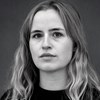compilation
Restricted completion of sparse partial Latin squares.
Combinatorics, Probability and Computing, 1-21. doi:10.1017/S096354831800055X, Cambridge University Press. Abstract An n × n partial Latin square P is called α-dense if each row and column has at most αnnon-emp times in . An × array where each cell contains a subset of {1,…, } is a (, ) -array if each symbol occurs at most times in each row and column and each cell contains a set of size at most . Combining the notions of completing partial Latin squares and avoiding arrays, we prove that there are constants , > 0 such that, for every positive integer , if is an -dense × partial Latin square, is an × -array, and no cell of contains a symbol that appears in the corresponding cell of , then there is a completion of that avoids ; that is, there is a Latin square that agrees with on every non-empty cell of , and, for each , satisfying 1 ≤ , ≤ , the symbol in position (, ) in does not appear in the corresponding cell of .
Democratizing the Corporation - Conference 27-29 January
On the 27-29:th of January we are hosting the conference Democratizing the Corporation in collaboration with the Havens-Wright Center for Social Justice, University of Wisconsin-Madison. The conference

Julia Adler
I am a research assistant at the Mimir Center for Longterm Futures Research. In my role as research assistant I support the research group with planning, administration and implementation of the projec I am also writing my master's thesis in political science at Stockholm University as part of this project. I also support the communications department.

Andrea S. Asker
I am a researcher at the Institute for Futures Studies and will be conducting a postdoctoral research project within the philosophy of death at Hitotsubashi University in Tokyo during the fall of 2025
Competition Policy and the Swedish Model
The aim of this paper is to present some findings from a study on the development of competition policy in Sweden since 1945. The comprehensive questions are about the view on knowledge in competition
Lukas Meyer: Legitimate Expectations and Compensation in Changing Circumstances
Venue: Institute for Futures Studies, Holländargatan 13 in Stockholm Research seminar with Lukas Meyer, professor of philosophy at the University of Graz. Abstract: This paper discusses how legitimate exp

How to solve the climate crisis together
This projects aims to solve ideological conflicts when it comes to climate politics, by suggesting climate work that aligns with the different ideologies' values.
Competition: Your vision of a positive future
The Paris Institute for Advanced Study and the 2100 Fondation in partnership with the Institute for Futures Studiesare launching the first Positive Future competition in order to encourage the elaboration
Cooperation through collective punishment and participation
Political Science Research and Methods Abstract We experimentally explore the role of institutions imposing collective sanctions in sustaining cooperation. In our experiment, players only observe noisy
Perspectives on Violent Extremism: Insights from Swedish Population Registers in a Global Comparison
Terrorism and Political Violence Abstract This study explores the characteristics of individuals affiliated with violent extremist milieus in Sweden, focusing on far-right, far-left, and Islamic extremi








